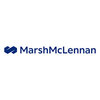
State Street Corporation
Proud winner of ABECA 2025 - AmbitionBox Employee Choice Awards
Filter interviews by
State Street Corporation Associate Interview Questions and Answers
12 Interview questions
Bonds are debt instruments, while equity represents ownership in a company.
Bonds are loans made to corporations or governments, with fixed interest payments.
Example: A government bond pays interest over time and returns the principal at maturity.
Equity represents ownership in a company, typically through stocks.
Example: Buying shares of a company means you own a part of that company.
Bonds are generally considered ...
Derivatives are financial instruments whose value is derived from an underlying asset or group of assets.
Derivatives can be used for hedging, speculation, or arbitrage.
Common types of derivatives include options, futures, forwards, and swaps.
For example, a stock option derives its value from the underlying stock, while a currency swap derives its value from exchange rates.
Different types of financial statements include income statement, balance sheet, cash flow statement, and statement of changes in equity.
Income statement: Shows a company's revenues and expenses over a specific period of time.
Balance sheet: Provides a snapshot of a company's financial position at a specific point in time, showing assets, liabilities, and equity.
Cash flow statement: Details the cash inflows and out...
Net Asset Value (NAV) is the value of a fund's assets minus its liabilities, divided by the number of shares outstanding.
NAV is calculated by subtracting the fund's liabilities from its assets, then dividing by the number of shares outstanding.
NAV is used to determine the price at which investors can buy or sell shares of a mutual fund or ETF.
NAV is typically calculated at the end of each trading day.
For example, ...
What people are saying about State Street Corporation





Capital market is a financial market where individuals and institutions trade financial securities.
Capital market facilitates the buying and selling of long-term debt and equity instruments.
It includes stock markets and bond markets.
Investors can buy/sell stocks, bonds, and other financial instruments in the capital market.
Companies raise capital by issuing stocks or bonds to investors in the capital market.
Exampl...
NAV is calculated by subtracting liabilities from assets and dividing by the number of outstanding shares.
Calculate the total value of assets
Subtract the total value of liabilities
Divide the result by the number of outstanding shares
NAV = (Total Assets - Total Liabilities) / Outstanding Shares
NAV is used to determine the value of a mutual fund or ETF
Derivatives are financial contracts that derive their value from an underlying asset or security.
Types of derivatives include futures, options, swaps, and forwards.
Futures are contracts to buy or sell an asset at a future date at a predetermined price.
Options give the holder the right, but not the obligation, to buy or sell an asset at a predetermined price.
Swaps involve exchanging cash flows based on different fi...
Fund Accounting is a specialized accounting system used by non-profit organizations and government agencies to track and manage funds.
It involves tracking and reporting on the financial activity of specific funds or grants.
It ensures that funds are used for their intended purposes and that financial reports are accurate and transparent.
Examples include tracking donations to a non-profit organization or managing go...
A bond is a debt security that represents a loan made by an investor to a borrower.
Bonds are issued by corporations, municipalities, and governments to raise capital.
They have a fixed interest rate and a maturity date when the principal is repaid.
Bonds are generally considered less risky than stocks but offer lower potential returns.
Investors can buy and sell bonds on the secondary market.
Examples of bonds include...
Hedge funds are private investment funds that use aggressive strategies to generate high returns. Mutual funds are professionally managed investment portfolios that pool money from many investors.
Hedge funds are typically only available to accredited investors and have fewer regulations than mutual funds.
Hedge funds often use leverage and derivatives to amplify returns, but also increase risk.
Mutual funds are more...
State Street Corporation Associate Interview Experiences
20 interviews found
I applied via Campus Placement
Basic Quants questions were asked .
(1 Question)
- Q1. Questions were asked on debt instruments.
Basic questions included aptitude
(2 Questions)
- Q1. What is derivatives
- Ans.
Derivatives are financial instruments whose value is derived from an underlying asset or group of assets.
Derivatives can be used for hedging, speculation, or arbitrage.
Common types of derivatives include options, futures, forwards, and swaps.
For example, a stock option derives its value from the underlying stock, while a currency swap derives its value from exchange rates.
- Q2. Types of derivatives
- Ans.
Derivatives are financial instruments whose value is derived from an underlying asset or group of assets.
Types of derivatives include options, futures, forwards, and swaps.
Options give the holder the right, but not the obligation, to buy or sell an asset at a specified price before or on a specified date.
Futures are contracts to buy or sell an asset at a future date for a price agreed upon today.
Forwards are similar to...
(1 Question)
- Q1. No question just salary discussion
I appeared for an interview in Sep 2024, where I was asked the following questions.
- Q1. About process………
- Q2. Past work experience……
Interview Preparation Tips
(1 Question)
- Q1. About equity a d share
(2 Questions)
- Q1. Tell me about yourself self
- Ans.
I am a dedicated professional with a background in finance and a passion for data analysis, seeking to leverage my skills as an Associate.
Educational Background: I hold a degree in Finance from XYZ University, where I graduated with honors.
Professional Experience: I interned at ABC Corp, where I assisted in financial modeling and analysis, contributing to a 15% increase in efficiency.
Skills: Proficient in Excel and fin...
- Q2. What do you mean by bonds and equity
- Ans.
Bonds are debt instruments, while equity represents ownership in a company.
Bonds are loans made to corporations or governments, with fixed interest payments.
Example: A government bond pays interest over time and returns the principal at maturity.
Equity represents ownership in a company, typically through stocks.
Example: Buying shares of a company means you own a part of that company.
Bonds are generally considered safer...
(1 Question)
- Q1. Group dicussion
(2 Questions)
- Q1. Derivatives and accounting rules
- Q2. Corporate actions
(2 Questions)
- Q1. What are different types of financial statements?
- Ans.
Different types of financial statements include income statement, balance sheet, cash flow statement, and statement of changes in equity.
Income statement: Shows a company's revenues and expenses over a specific period of time.
Balance sheet: Provides a snapshot of a company's financial position at a specific point in time, showing assets, liabilities, and equity.
Cash flow statement: Details the cash inflows and outflows...
- Q2. What is Net Asset Value?
- Ans.
Net Asset Value (NAV) is the value of a fund's assets minus its liabilities, divided by the number of shares outstanding.
NAV is calculated by subtracting the fund's liabilities from its assets, then dividing by the number of shares outstanding.
NAV is used to determine the price at which investors can buy or sell shares of a mutual fund or ETF.
NAV is typically calculated at the end of each trading day.
For example, if a ...
I appeared for an interview in Jan 2024.
(1 Question)
- Q1. What is capital market
- Ans.
Capital market is a financial market where individuals and institutions trade financial securities.
Capital market facilitates the buying and selling of long-term debt and equity instruments.
It includes stock markets and bond markets.
Investors can buy/sell stocks, bonds, and other financial instruments in the capital market.
Companies raise capital by issuing stocks or bonds to investors in the capital market.
Examples of...

(2 Questions)
- Q1. Derivatives, Mutual fund
- Q2. Basics of financial reporting
I appeared for an interview before Feb 2024.
General reasoning and logical questions.
(2 Questions)
- Q1. Derivative related
- Q2. Mutual funds and other type of funds
State Street Corporation Interview FAQs
Tell us how to improve this page.
State Street Corporation Interviews By Designations
- State Street Corporation Senior Associate Interview Questions
- State Street Corporation Associate2 Interview Questions
- State Street Corporation Associate Interview Questions
- State Street Corporation Assistant Manager Interview Questions
- State Street Corporation Team Lead Interview Questions
- State Street Corporation Emerging Leader Interview Questions
- State Street Corporation Financial Analyst Interview Questions
- State Street Corporation Manager Interview Questions
- Show more
Interview Questions for Popular Designations
Overall Interview Experience Rating
based on 16 interview experiences
Difficulty level
Duration
Associate Interview Questions from Similar Companies
State Street Corporation Associate Reviews and Ratings
based on 244 reviews
Rating in categories
|
Senior Associate
5.1k
salaries
| ₹5 L/yr - ₹11.4 L/yr |
|
Associate2
4.1k
salaries
| ₹2.4 L/yr - ₹6.6 L/yr |
|
Team Lead
2.1k
salaries
| ₹8.5 L/yr - ₹14.7 L/yr |
|
Assistant Manager
2k
salaries
| ₹12.6 L/yr - ₹23 L/yr |
|
Associate
1.6k
salaries
| ₹2.7 L/yr - ₹6.2 L/yr |

Wells Fargo

JPMorgan Chase & Co.

HSBC Group

Cholamandalam Investment & Finance
- Home >
- Interviews >
- State Street Corporation Interview Questions















